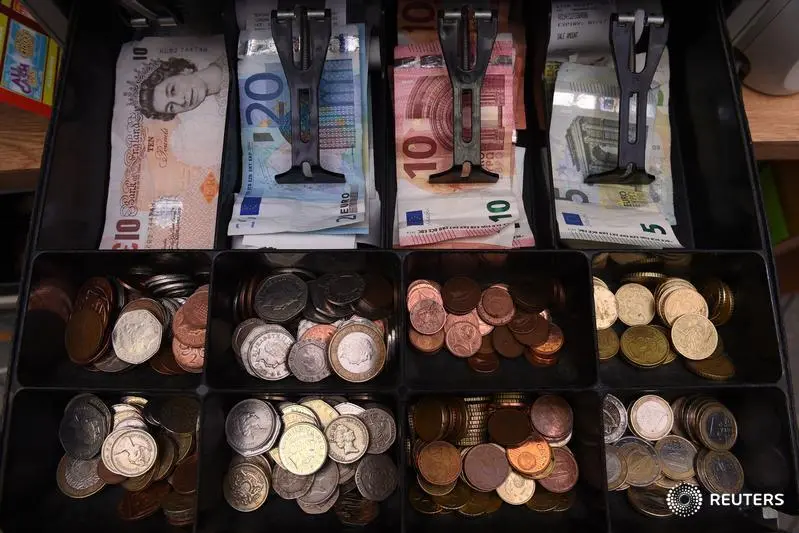PHOTO
LONDON - Sterling fell on Thursday after the Bank of England raised interest rates by the most in 27 years as it seeks to tame inflation now seen peaking at more than 13% but also warned that a long recession is on its way.
The pound fell 0.35% to $1.2105, having traded 0.3% higher at $1.2184 just before the BoE decision was announced.
The BoE warned that Britain was facing a recession as it rose its benchmark rate by 50 basis points (bps) to 1.75% in an attempt to curb inflation.
Sterling fell 0.6% against the euro to 84.22 pence, after hitting its lowest level in nine days.
"The pound is falling despite a 50 bp hike by the BoE. The reaction mostly boils down to the BoE’s pessimistic outlook for the UK economy, with a recession now expected to start in the forth quarter and to extend through next year," said Francesco Pesole, FX strategist at ING.
Money markets expectation for rate hikes this year were little changed immediately after the BoE rate move, with markets expecting another 95 bps of hikes by December.
BoE Governor Andrew Bailey said on Thursday that returning British inflation to the 2% target was an absolute priority, and said all options were on the table at future policy meetings.
Sterling has weakened more than 10% against the dollar this year as rampant inflation, a weakening economy and the Russia-Ukraine war have encouraged investors to sell the risk-sensitive currency.
Pressure on the BoE has intensified after big rate hikes by the U.S. Federal Reserve, the European Central Bank and other central banks, weakening the value of the pound.
Data on weakness in the British economy keeps coming. A survey on Thursday showed British construction companies reported their biggest fall in activity in more than two years last month, as house-builders scaled back work and civil engineering firms faced a dearth of new contracts.
STERLING WEAKNESS LIFTS STOCKS
The UK's blue chips FTSE 100 share price index initially dipped following the BoE's decision but quickly recovered as the pound weakened. It was up 0.5%, after touching its highest in around two months.
UK bank stocks eased from highs and were 0.4% lower on the day, while a UK-domestically focused index rose 0.9% on the day.
British gilt yields were down 8 basis points on the day at 1.83%. They had stood at 1.91% before the decision.
Euro zone bond yields extended their falls with Germany's 10-year yield down 6 bps at 0.804%.
(Reporting by Joice Alves, Additional reporting by the London Markets Team Editing by Dhara Ranasinghe and Frances Kerry)





















